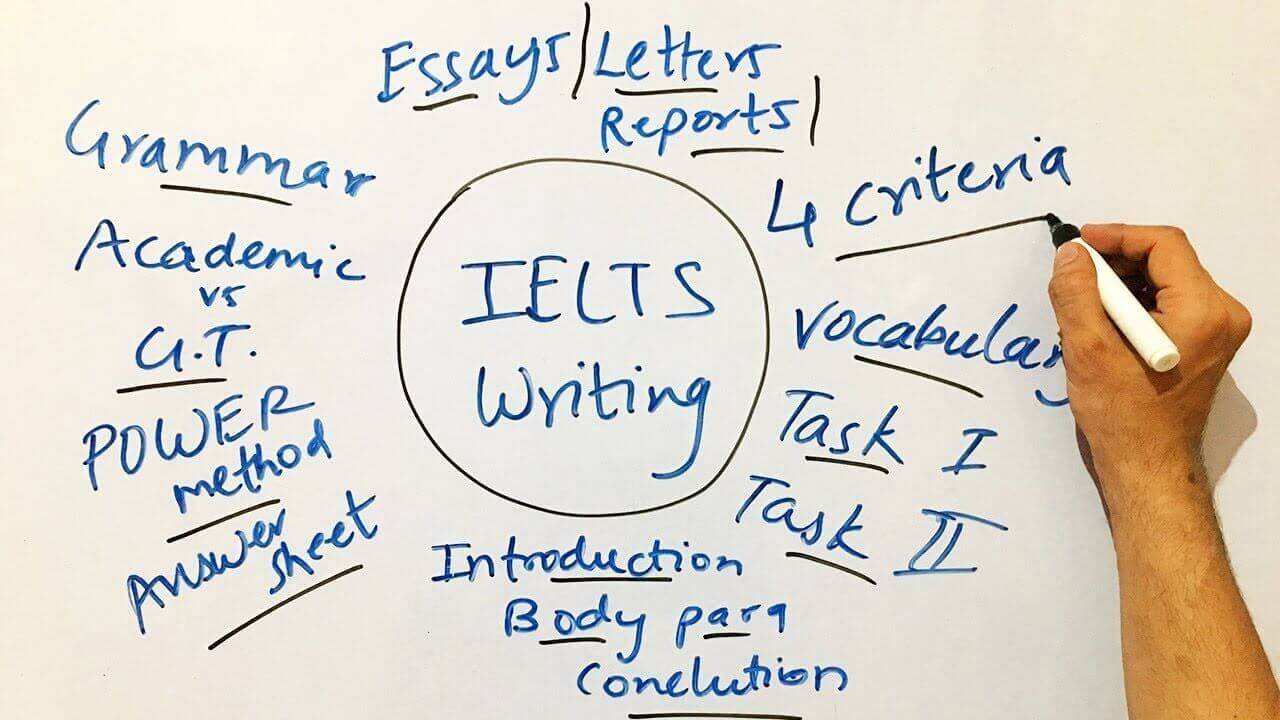Strategies for IELTS Academic Writing Task 1 (part 1/2)
Strategies for IELTS Academic Writing Task 1 (part 1/2) Students on our IELTS preparation course are often overwhelmed when approaching the IELTS...
Flexible group courses for everyday communication and fluency.
Academic EnglishPrepare for university study with advanced academic language skills.
Business EnglishEnglish for professional communication in corporate and workplace settings.
Private LessonsOne-to-one lessons tailored to your goals, schedule and interests.
Language ExcursionsLearn English while exploring Cape Town with your teacher as your guide.
Get the score you need with targeted strategies and expert support.
Cambridge ExamsPrepare for the FCE or CAE with structured, high-quality training.
TOEFL PreparationBuild confidence and test skills to succeed in the TOEFL exam.
Personalised one-to-one English lessons delivered online, on your schedule.
Corporate GroupsLive online training for teams, customised to your organisation’s needs.
English for Tech ProfessionalsSelf-paced English course designed for developers, engineers, and IT teams.
Qualify to teach English in South Africa or abroad with this practical course.
Blended Certificate in TEFLCombine online study with hands-on classroom experience in Cape Town.
Learn in a historic university campus right in the city centre.
Tours and ActivitiesExplore Cape Town and make friends through weekly excursions.
Social ProgrammeJoin our schedule of fun events, outings and conversations.
Getting AroundTips and tools for navigating the city like a local.
Social and DigitalStay connected online and through our vibrant student community.
A friendly, sociable student house just a short walk from school.
Adderley StudiosModern, secure apartments in the heart of Cape Town.
HomestayLive with a local family and experience South African culture.
Hotels & AparthotelsIndependent options for comfort, privacy and flexibility.
All tuition and accommodation fees in one clear table.
Booking InformationWhat to expect before, during and after you book.
Instalment PlansFlexible payment options for long-term bookings.
User LoginView your bookings, make payments, and manage your details.
Visa options and support for international students coming to South Africa.
Insurance & TravelWhat you need to know about travel, insurance and staying safe.
MyELC AppAccess your timetable, progress and more on the student app.
Arrival and OrientationHow we help you settle in on your first day in Cape Town.
How to request certificates, transcripts, or proof of enrolment.
Terms & ConditionsThe small print — bookings, cancellations, and more.
Contact UsGet in touch with the ELC team by email, phone or WhatsApp.
Privacy PolicyHow we protect your data and respect your privacy.
What makes ELC and UCT a great place to learn English.
About the University of Cape TownSouth Africa’s leading university and home to the ELC.
About the English Language CentreWho we are, what we offer, and how we teach.
Our TeamMeet the teachers, support staff and leadership team behind ELC.
Our international quality standards and endorsements.
Media & PressNews coverage, interviews and media mentions of ELC.
TestimonialsWhat our students, partners and teachers say about us.
BlogUpdates, stories and insights from the ELC community.
Flexible group courses for everyday communication and fluency.
Prepare for university study with advanced academic language skills.
English for professional communication in corporate and workplace settings.
One-to-one lessons tailored to your goals, schedule and interests.
Learn English while exploring Cape Town with your teacher as your guide.
Get the score you need with targeted strategies and expert support.
Prepare for the FCE or CAE with structured, high-quality training.
Build confidence and test skills to succeed in the TOEFL exam.
Personalised one-to-one English lessons delivered online, on your schedule.
Live online training for teams, customised to your organisation’s needs.
English for Tech Professionals
Self-paced English course designed for developers, engineers, and IT teams.
Qualify to teach English in South Africa or abroad with this practical course.
Combine online study with hands-on classroom experience in Cape Town.
Learn in a historic university campus right in the city centre.
Explore Cape Town and make friends through weekly excursions.
Join our schedule of fun events, outings and conversations.
Tips and tools for navigating the city like a local.
Stay connected online and through our vibrant student community.
A friendly, sociable student house just a short walk from school.
Modern, secure apartments in the heart of Cape Town.
Live with a local family and experience South African culture.
Independent options for comfort, privacy and flexibility.
Use our Course Wizard to match your goals and level to the best option
Course WizardAll tuition and accommodation fees in one clear table.
What to expect before, during and after you book.
Flexible payment options for long-term bookings.
View your bookings, make payments, and manage your details.
Visa options and support for international students coming to South Africa.
What you need to know about travel, insurance and staying safe.
Access your timetable, progress and more on the student app.
How we help you settle in on your first day in Cape Town.
How to request certificates, transcripts, or proof of enrolment.
The small print — bookings, cancellations, and more.
Get in touch with the ELC team by email, phone or WhatsApp.
How we protect your data and respect your privacy.
What makes ELC and UCT a great place to learn English.
About the University of Cape Town
South Africa’s leading university and home to the ELC.
About the English Language Centre
Who we are, what we offer, and how we teach.
Meet the teachers, support staff and leadership team behind ELC.
Our international quality standards and endorsements.
News coverage, interviews and media mentions of ELC.
What our students, partners and teachers say about us.
Updates, stories and insights from the ELC community.

Table of Contents
Even with the increased use of chat messaging services like Slack and MS Teams, email remains the key form of communication in the workplace, with the average office worker sending 40 emails a day. So what do you need to consider when writing emails at work?
When you send a formal email it is important to start with an appropriate greeting. If you are writing to someone you don’t know for the first time it’s a good idea to start with “Dear” and the Title and surname of the recipient. For example: Dear Mr. Smith or Dear Dr. Khan. After some correspondence with the person and after you have established a relationship, it may now be appropriate to use first names and greetings like “Hi” in further correspondence. If you don’t know the name of the person you are writing to you can use “ To whom it may concern”. If you are unsure about how formal or informal to be, it’s better to be formal rather than running the risk of sounding unprofessional.
Make sure that you include a short and relevant subject in the subject line of the email. If you are applying for a job or to a school, the advert may indicate what the subject of the email should be. Remember to be specific as this gives the recipient a clearer idea of what your email is about. For example it’s better to say “ Job Application- Senior Analyst” rather than just “ Job Application.” You should also state your purpose at the beginning of the email, you can start with “ I am writing to apply” or “I am writing to enquire about.”
The tone of your email is incredibly important. Business emails are formal in tone and language. There are however grades of formal language. In highly formal emails, for example job applications you shouldn’t use contractions like “I’m”, it’s better to use “I am”. However, in the normal course of business it is appropriate to use contractions. Formal language makes your message more polite but be careful of being over polite as you may not convey your intended meaning.
In formal correspondence keep your messages as short as possible. Of course, you need to write formally and include all the relevant information, but make sure there is a clear reason for every sentence you write. It is better to write short simple sentences. Writing concisely is a skill that people often overlook. When you write long sentences with lots of clauses you may end up confusing yourself and your reader, and that’s the last thing you want to do! In the culture of most English speaking countries, business emails are purely business and there is no need to inquire about personal lives of the recipient. If you really want to include a personal touch, “ I hope this email finds you well” is sufficient.
Luckily when writing emails there are set phases that you can use to convey what you are asking for or stating. This means that you won’t have to think too hard about some parts of the language. Below is a list of commonly used phrases with its meaning and an example:
| Phrase | Meaning | Example |
|---|---|---|
| I am writing to enquire about… | Asking for information | I’m writing to enquire about the job advertised on your website. |
| I am writing in reference to… | I’m writing about | I’m writing in reference to your email. |
| I would be very grateful if you could… Could you (possibly)…? Would you mind sending me…? I was wondering if you could |
Making a request | I would be very grateful if you could send me the report. Could you forward me the details. Would you mind sending me the 2019 budget report I was wondering if you could reschedule the meeting. |
| (First of all) I would like to apologise for… Please accept our (sincerest) apologies for the inconvenience caused |
Apologising | I would like to apologise for the misunderstanding. Please accept our sincerest apologies for the delay in delivery and any inconvenience caused. |
| We regret to inform you that… We are sorry to announce that… |
Giving bad news | We regret to inform you that your application has been unsuccessful. We are sorry to announce that the conference has been cancelled. |
| I/ We would like to inform you that… | Making an announcement | I would like to inform you of price changes in the new catalogue. |
| I attach | Attaching documents | I attach an update CV and photograph. |
When closing emails you can express thanks with phrases like “ Thank you for your cooperation/ consideration” or “ I look forward to hearing from you”. Lastly you can sign off with “ Best regards” “Best wishes” or simply “ Thank you.”
Finally remember to read your email a few times before sending. Check for tone, grammar, spelling and that you have included all the relevant information and attachments.
Happy writing!
By Il-Haam Ahmed
Check out Five Tips for Effective Meetings.

Strategies for IELTS Academic Writing Task 1 (part 1/2) Students on our IELTS preparation course are often overwhelmed when approaching the IELTS...

How to Write a Great Cover Letter Applying for a job can be stressful and often people spend a lot of time working on their CV and then just write...

Intro to the IELTS Writing Paper Like the rest of the exam, the IELTS academic writing paper takes some the skills and competencies required for...